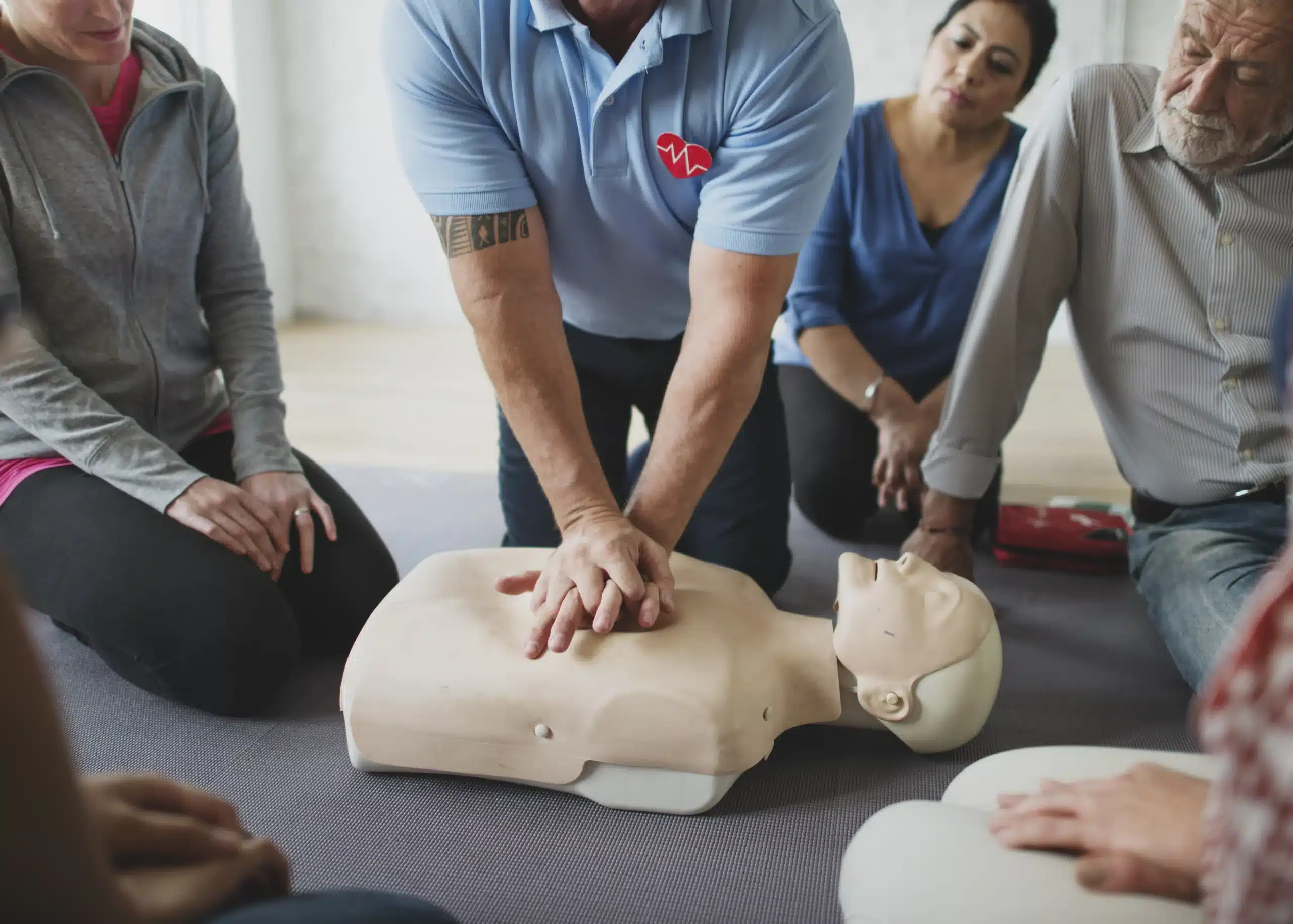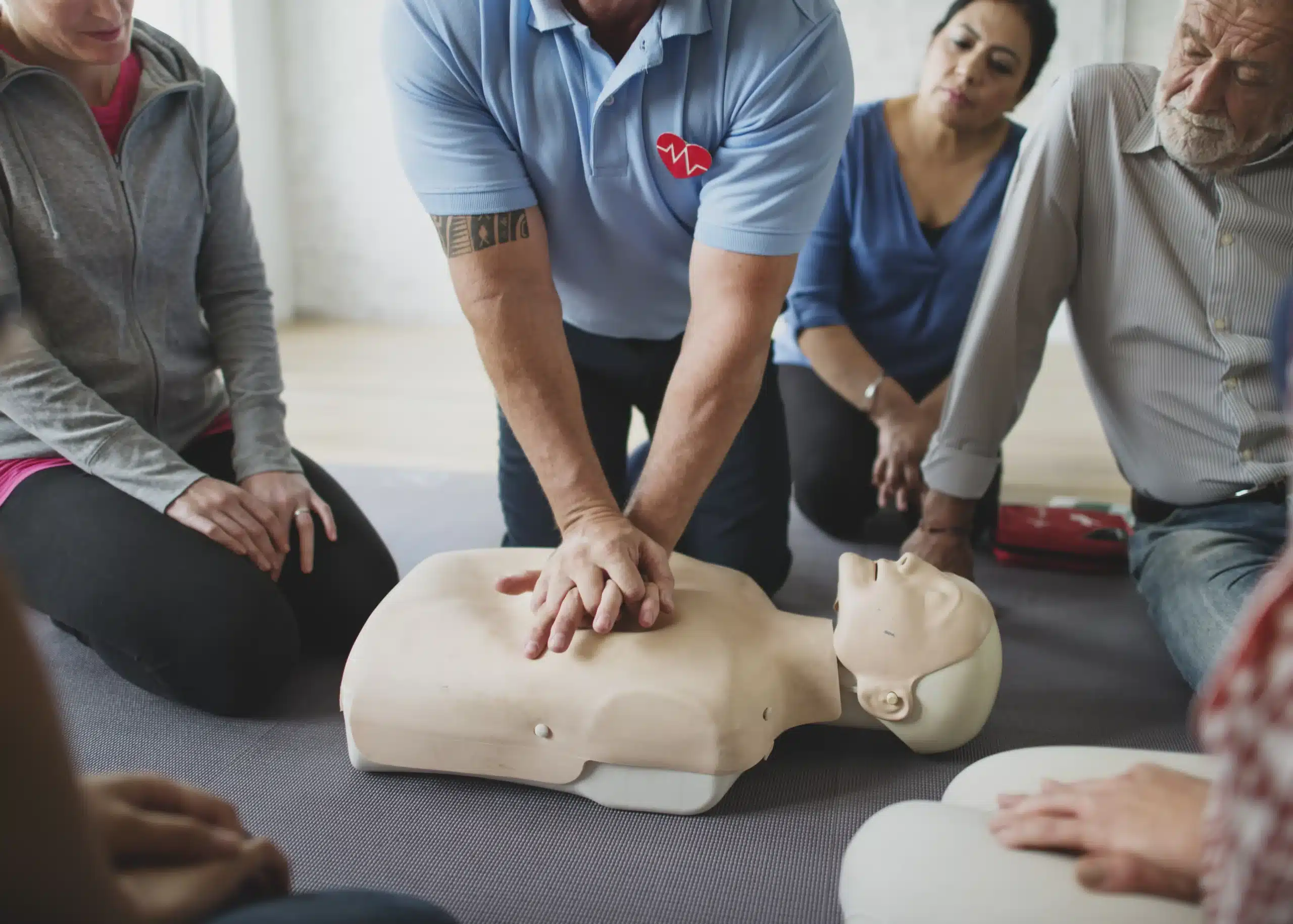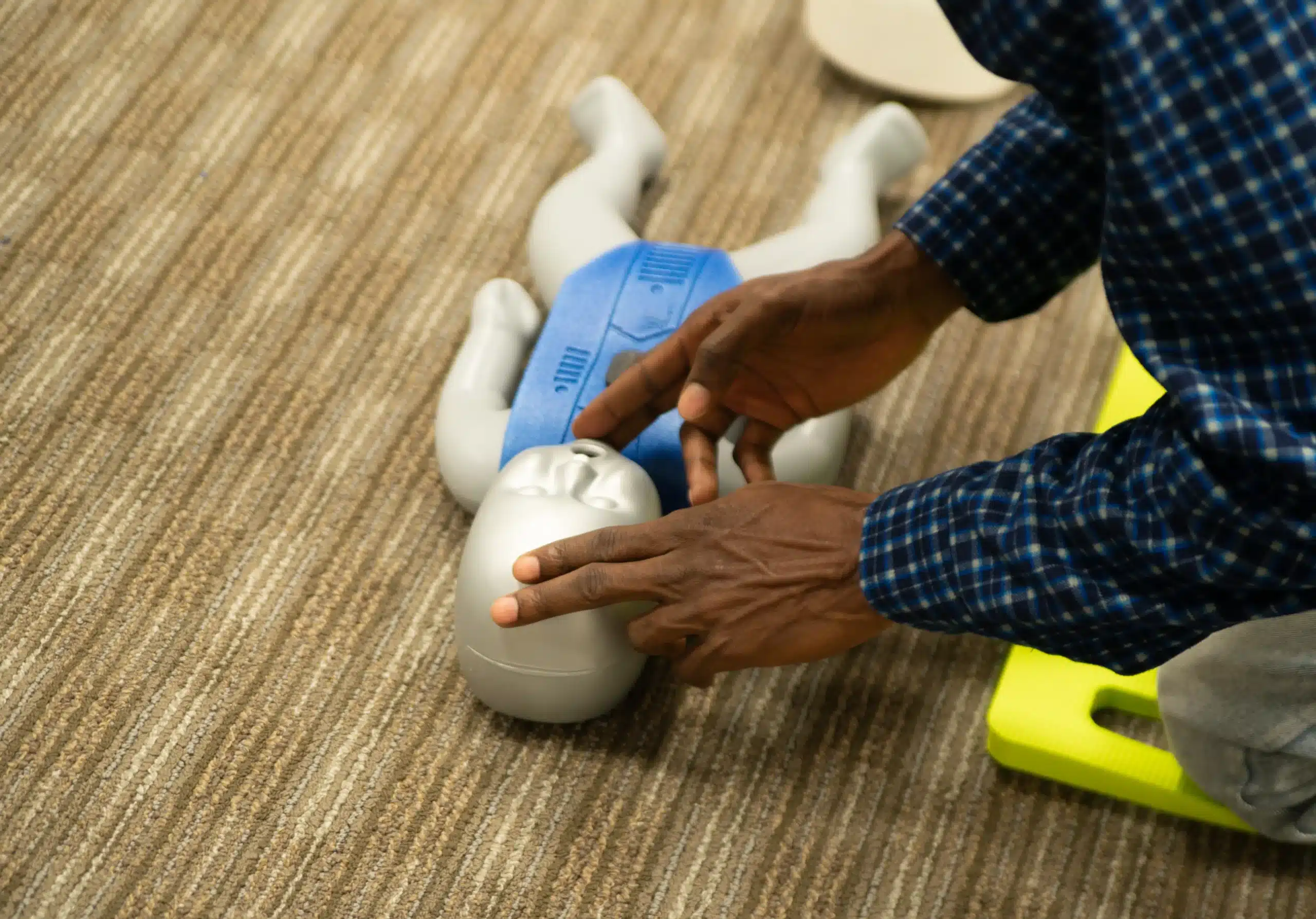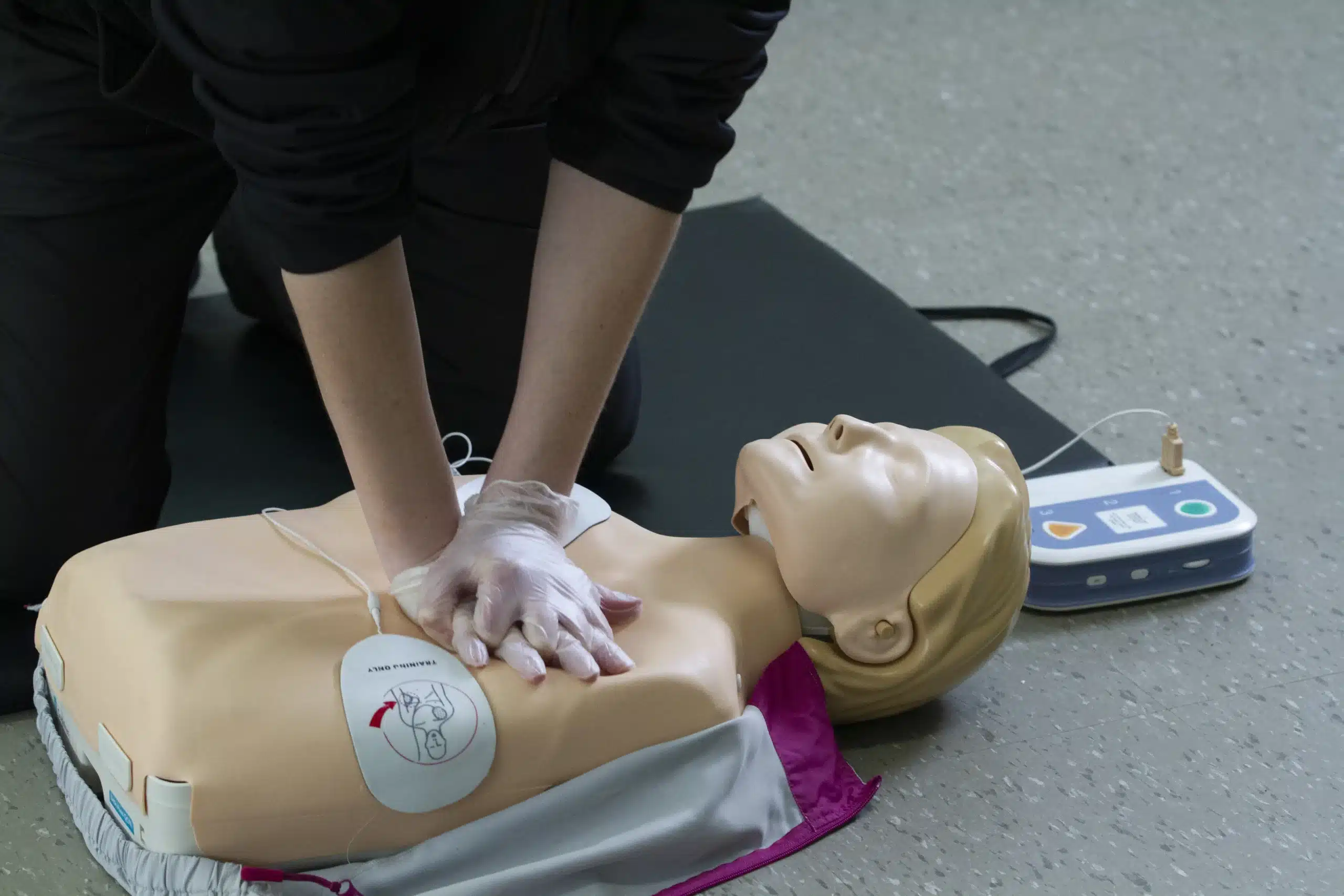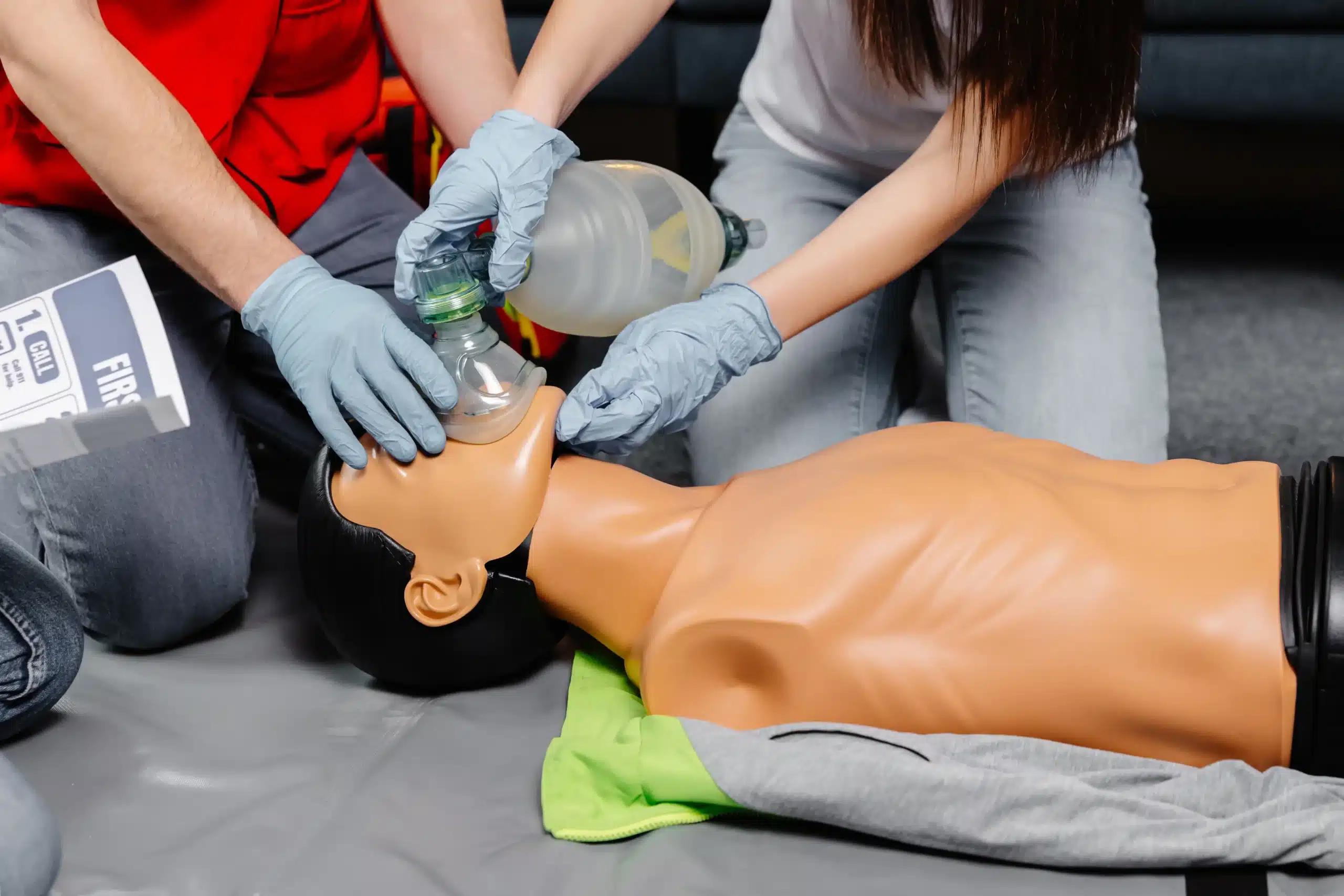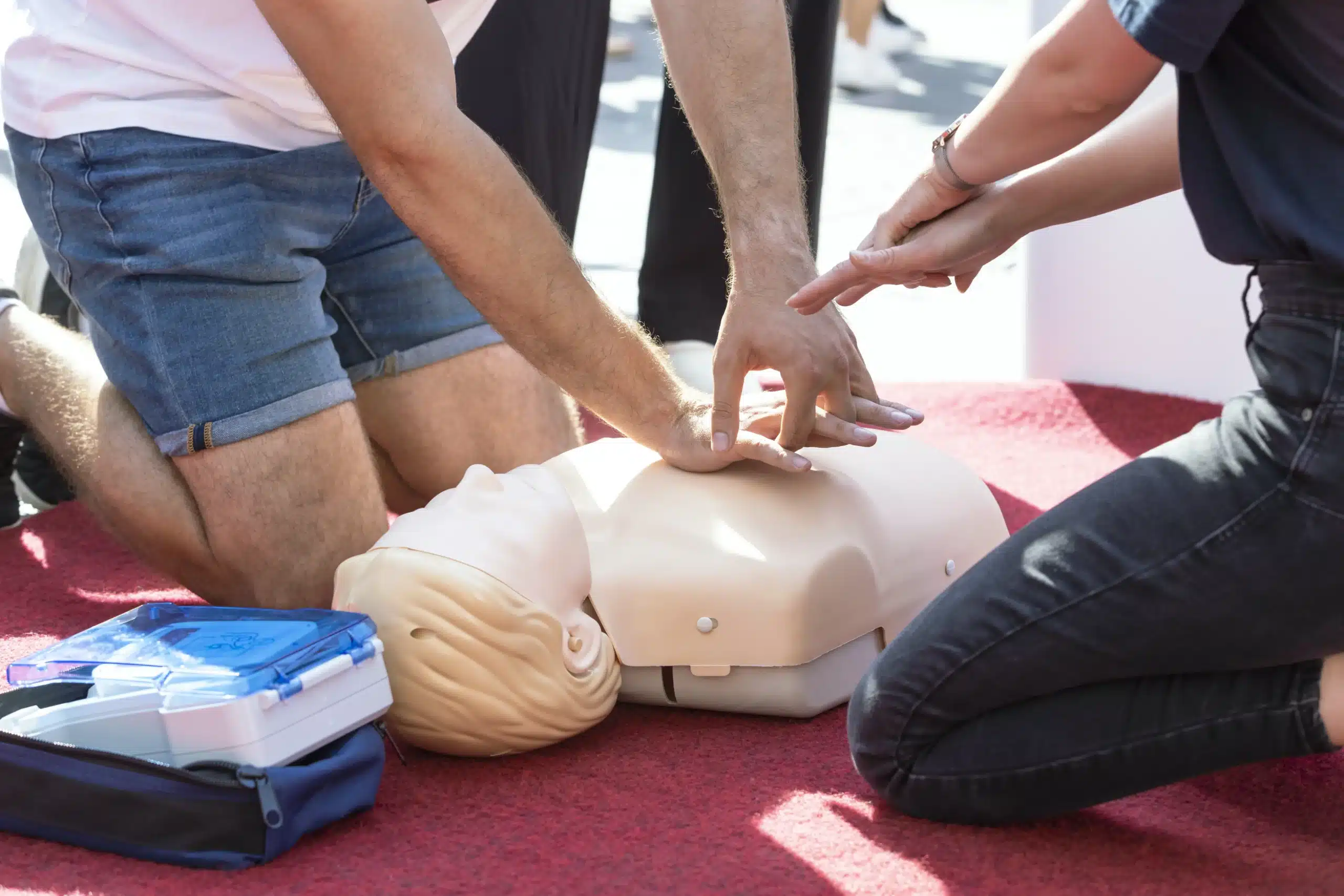Your CPR certification is more than just a piece of paper; it’s a testament to your willingness to step up in times of need. CPR renewal in Campbell ensures your skills are sharp and you’re confident in your ability to provide assistance. This comprehensive guide breaks down the process of CPR renewal in Campbell, offering insights into different course options, local providers, associated costs, and what to expect in your renewal class. We’ll also clarify common misconceptions and provide practical tips to prepare you for a successful renewal experience.
Key Takeaways
- Stay current with life-saving skills: Regular CPR renewal ensures you’re prepared and confident in your ability to respond to emergencies effectively. It’s a proactive step towards safeguarding yourself and those around you.
- Find a course that fits your lifestyle: From online convenience to in-person instruction, explore the various CPR renewal options available to find the best fit for your schedule and learning preferences. Consider factors like course length, format, and location.
- Affordable training is within reach: Campbell CPR Classes offers competitive pricing and a low-price guarantee, making high-quality CPR renewal accessible to everyone. Explore their range of courses and group discounts to find a cost-effective solution.
What is CPR Renewal in Campbell?
CPR renewal in Campbell simply means recertifying your CPR skills and knowledge. This process ensures you’re up-to-date on the latest guidelines and techniques. CPR certifications are typically valid for two years, after which you’ll need to renew to maintain your qualifications. Renewal courses refresh your skills and keep you informed about any changes in CPR practices. Think of it as a tune-up for your life-saving skills. Choosing a recognized training provider is essential for ensuring your certification is valid and accepted. Campbell CPR Classes offers American Heart Association compliant courses, guaranteeing high-quality training that meets industry standards. Regularly reviewing and practicing your CPR techniques is key to staying proficient and confident in your abilities.
CPR Renewal Course Types
Choosing the right CPR renewal course depends on your specific needs and requirements. Let’s break down the main types available in Campbell.
AHA Courses
The American Heart Association (AHA) offers a range of CPR renewal courses designed for healthcare providers. These courses are known for their in-depth instruction based on the latest medical research. Many employers require healthcare professionals to hold AHA certifications, so check with your workplace for specific requirements. AHA courses cover various levels, from Basic Life Support (BLS) for healthcare providers to Advanced Cardiovascular Life Support (ACLS) and Pediatric Advanced Life Support (PALS). The length of your AHA certification depends on the specific course you take.
Red Cross Courses
The American Red Cross also provides CPR renewal courses, often structured as abbreviated versions of their initial certification classes. These streamlined courses are ideal if your current certification is nearing its expiration date and you need a quick refresher. Red Cross courses typically cover adult, child, and infant CPR, as well as AED training and First Aid. While costs can vary, Red Cross CPR training generally ranges from $70 to $150, depending on the location and training center. If you’re looking for a shorter, more budget-friendly option, a Red Cross renewal course might be a good fit.
Campbell CPR Classes
Campbell CPR Classes offers a variety of AHA-based CPR renewal courses, including BLS, ACLS, PALS, and First Aid. We also offer specialized training like EMSA Child Care Health & Safety and RQI. As a woman-owned AHA Training Center, we pride ourselves on excellent customer service and competitive pricing, backed by our Low Price Guarantee for classes in Santa Clara County. Whether you need to renew your BLS certification or want to add First Aid to your skillset, we have options to meet your needs. We offer convenient on-site training at your home or business in Campbell, San Jose, and Cupertino, or you can join one of our regularly scheduled classes. For larger groups, we offer discounted rates to make training more accessible. Contact us to learn more and schedule your CPR renewal.
Find and Enroll in CPR Renewal Classes
Finding the right CPR renewal class in Campbell is easier than you think. Whether you prefer online convenience or the hands-on experience of an in-person class, several options cater to different learning styles and schedules. We’ve compiled some resources to help you find and register for your next CPR renewal course.
Online Class Listings
Online CPR renewal classes offer flexibility for busy professionals and those who prefer learning at their own pace. Providers like the American CPR Care Association offer nationally accepted online recertification courses that follow the latest ECC guidelines. CPRCalendar.com may also list online options for local classes, including those in nearby cities if Campbell classes aren’t readily available. Check their CPR classes in Campbell page for more information.
Local Training Centers
If you learn best in a traditional classroom setting, several training centers in and around Campbell offer in-person CPR renewal. Always CPR Training in Campbell provides AHA-certified BLS renewal courses with hands-on instruction and instructor feedback. You can also explore options with the American Red Cross in nearby San Antonio. They offer various formats, including in-person and blended learning. For those specifically seeking American Heart Association courses in Campbell, reach out to us at Campbell CPR Classes. We offer a range of AHA certifications, including BLS, ACLS, PALS, and more. Visit our website to learn more about our offerings.
Registration
Registering for your CPR renewal class is typically straightforward. Websites like CPRCalendar.com often allow you to browse available classes and register online. For local training centers like Campbell CPR Classes or Always CPR Training, check their websites for online registration options or contact information. You can always contact us directly if you have any questions or need help finding the perfect CPR renewal class for you. We’re happy to assist!
CPR Renewal Costs & Value
Knowing the cost of CPR renewal is an important part of planning your recertification. Understanding pricing structures, exploring available discounts, and seeking out providers with transparent pricing can help you find the best value.
Course Pricing
CPR renewal course costs vary depending on the provider, the type of course (BLS, CPR/AED, First Aid, etc.), and the location. Basic CPR renewal courses can start as low as $20, while more comprehensive courses like BLS renewal may range from $40 to $80. For example, CPRToday offers a BLS course for around $50, sometimes with introductory discounts. It’s always a good idea to compare pricing from different providers like the American Red Cross, which generally offers CPR training between $70 and $150, depending on the course and location. Remember to check what’s included in the course fee, such as study materials, certification cards, and any additional certifications. Campbell CPR Classes offers competitive pricing on all our courses, and we encourage you to compare our prices with other providers in the area.
Group Discounts
If you’re renewing your CPR certification with a group, such as coworkers or a community organization, inquire about group discounts. Many training centers, including Campbell CPR Classes, offer reduced rates for groups of five or more. These discounts can make training more affordable and accessible for everyone. Contacting providers directly to discuss your group’s needs is often the best approach.
Low Price Guarantee
Finding affordable, high-quality CPR training is essential. Look for providers like Campbell CPR Classes who offer a low price guarantee. This ensures you’re receiving the best possible value for your training. A low price guarantee demonstrates a commitment to providing accessible training and can give you peace of mind knowing you’re getting a competitive rate. We’re confident in our pricing at Campbell CPR Classes and encourage you to contact us to learn more.
CPR Certification: Validity & Renewal
Knowing how long your CPR certification lasts and how to renew it is essential. This section clarifies the typical timeframe for CPR certifications, renewal procedures, and tips for maintaining your skills.
Certification Duration
CPR certification is valid for two years. This standard timeframe reflects the understanding that CPR skills and knowledge can decline over time. Regular practice and recertification ensure you’re always prepared to respond effectively in an emergency. Consider adding practice sessions to your routine to stay proficient.
Renewal Timelines
It’s crucial to renew your CPR certification before it expires. Aim to renew within 30 days of the expiration date. Letting your certification lapse beyond this window often requires a full recertification course instead of a shorter renewal course. Staying on top of your renewal timeline saves you time and ensures continuous certification. Contact us to learn more about renewal options and timelines.
Maintaining Certification
Even with a valid certification, regularly reviewing CPR techniques and practicing your skills is important. Consider refresher sessions or practice scenarios to keep your skills sharp. CPR guidelines can be updated, so taking a renewal course ensures you’re current with the latest recommendations from organizations like the American Heart Association. This commitment to ongoing learning demonstrates your dedication to providing high-quality CPR. Check our website for resources and information on maintaining your CPR skills.
Online vs. In-Person CPR Renewal
Deciding how to renew your CPR certification often comes down to choosing between online and in-person training. Both have their own advantages, so understanding your needs and learning style is key to making the right choice.
Online Renewal Advantages
Online CPR renewal offers incredible flexibility. You can renew your CPR certification from anywhere with an internet connection—your home, office, or even a coffee shop. This format works well for busy schedules, allowing you to complete the coursework at your own pace. Plus, many online courses grant immediate access to materials and issue your certification quickly upon completion.
In-Person Benefits
While online renewal offers convenience, in-person classes provide a valuable hands-on learning experience. In-person training emphasizes practical skills and allows for direct interaction with an instructor. You’ll get real-time feedback on your technique and have the opportunity to practice your skills in a simulated environment. This hands-on training is especially beneficial for those who learn best by doing and want to build confidence in their abilities. Some in-person training utilizes techniques like RQI technology, which provides immediate feedback and helps reinforce proper CPR techniques.
Choosing the Right Format
The best format for you depends on your individual circumstances and learning preferences. If you thrive in a structured environment with hands-on practice, an in-person class might be a better fit. However, if your schedule is packed and you need a quick and convenient option, online renewal could be the ideal solution. No matter which format you choose, remember that staying up-to-date on the latest CPR guidelines is crucial. If you’re a healthcare provider, consider the more comprehensive nature of AHA-certified courses. Choose the format that best supports your learning style and professional requirements.
What Happens in Your CPR Renewal Class?
Renewing your CPR certification is straightforward and focuses on refreshing essential skills and knowledge. Here’s what you can typically expect:
Course Content & Skills
CPR renewal courses cover core CPR techniques, including chest compressions, rescue breaths, and using an automated external defibrillator (AED). You’ll review how to recognize the signs of a cardiac arrest and practice responding effectively in various scenarios, like choking or near-drowning. The courses take a hands-on, practical approach to ensure you’re confident in your abilities. It’s important to stay up-to-date, as CPR guidelines can change periodically.
Class Format & Duration
CPR renewal classes are shorter than initial certification courses, typically lasting a few hours. This streamlined format focuses on key skills and knowledge, making it efficient for those recertifying. The Red Cross offers abbreviated CPR renewal courses that allow you to maintain your certification for another two years. You’ll find both in-person and online CPR renewal courses, offering flexibility for your schedule and learning style.
Assessment & Certification
Most CPR renewal courses include a skills test where you demonstrate your CPR technique on a manikin. Many training centers use technology that provides immediate feedback on the quality of your compressions and breaths, helping you refine your skills. This RQI technology helps maintain skills and may improve patient outcomes. Upon successful completion of the course and skills assessment, you’ll receive your updated CPR certification card, valid for another two years.
Prepare for Your CPR Renewal Class
Getting ready for your CPR renewal class doesn’t have to be stressful. With a little preparation, you can walk into class feeling confident and ready to refresh your lifesaving skills. Here’s how:
Review & Study
Before class, review the core concepts of CPR. Familiarize yourself with the latest CPR guidelines and techniques. Even a quick refresher can make a big difference. Consider revisiting materials from your initial CPR training or check out online resources. This pre-class review will solidify your knowledge and prepare you for the hands-on portion of the renewal course.
What to Bring
Your CPR renewal class will primarily focus on practical skills. Wear comfortable clothing, as you’ll be actively participating in demonstrations and practice scenarios. Bring a notebook and pen to jot down important reminders. While training centers provide equipment, double-check with Campbell CPR Classes about specific requirements. The goal is to refresh your skills and ensure you’re ready to respond effectively in an emergency.
Get Ready
Mentally preparing for class is just as important as reviewing the material. Think about why you initially got certified and the importance of these skills. Visualizing yourself confidently performing CPR can reduce anxiety and increase your focus during training. A positive mindset and a willingness to learn will make the renewal process smoother. Remember, regular practice is key to maintaining proficiency, and your renewal class offers a valuable opportunity to hone these essential skills.
CPR Renewal Providers in Campbell
Finding the right CPR renewal provider is key to a smooth and efficient recertification process. Here’s a rundown of reputable options in Campbell:
Campbell CPR Classes
Campbell CPR Classes offers a range of American Heart Association (AHA) certification courses, including CPR and BLS. They focus on providing excellent customer service and affordable pricing, making them a convenient choice for locals. Their commitment to low prices makes them particularly attractive for budget-conscious individuals. For larger groups, they also offer CPR discounts. Explore their website for their current CPR course schedule.
AHA Training Centers
The AHA itself is a leading authority in CPR training and certification. Locating an AHA Training Center near you ensures you’re receiving instruction that adheres to the latest AHA guidelines. These centers offer a standardized curriculum and high-quality instruction, giving you confidence in your renewed skills.
Red Cross
The American Red Cross is another well-respected provider of CPR training. They offer streamlined renewal courses designed for those whose certifications are nearing expiration. This focused approach can save you time while ensuring you meet the requirements for recertification.
Local Hospitals
Many local hospitals in and around Campbell also offer CPR renewal courses. Check with hospitals in your area to see their course schedules and availability. Hospital-based courses often provide access to experienced instructors and state-of-the-art equipment. Contacting hospitals directly or checking their websites is the best way to find information on their CPR renewal programs. Some providers, like In Home CPR, even bring the training to you.
CPR Renewal Misconceptions
It’s easy to get confused about CPR renewal requirements. Let’s clear up some common misconceptions so you can stay current with your certification.
Online Certification
One common question is whether online CPR certifications are valid. The answer is: it depends. Online CPR certifications are accepted if they’re issued by a reputable organization accredited by the American Heart Association (AHA) or a similar body. However, some employers may require in-person training, so it’s always best to check their specific requirements. Before enrolling in any online CPR course, confirm its accreditation and check with your employer about its acceptability.
Expiration
CPR certifications don’t last forever. They are typically valid for two years. It’s crucial to renew your certification within the recommended timeframe, usually within 30 days of the expiration date. If your certification lapses beyond that window, you’ll likely need to take a full recertification course, not just a renewal course. Keep track of your certification expiration date and contact us to schedule your CPR renewal.
Initial vs. Renewal Courses
Another area of confusion is the difference between initial CPR certification and renewal courses. Initial courses provide comprehensive training for first-time learners, covering all the essential skills and knowledge. Renewal courses, on the other hand, are designed for those who already hold a valid certification. These courses offer a refresher on existing skills, update you on the latest techniques, and reinforce best practices. A CPR renewal course helps ensure your skills are current and effective, allowing you to respond confidently in an emergency. Think of it as a tune-up to keep your life-saving skills sharp.
Related Articles
- CPR Certification in San Jose: A Complete Guide
- Discounted CPR Classes in Santa Clara County – Campbell CPR Classes
- CPR Classes in Cupertino: Your Ultimate Guide – Campbell CPR Classes
- ACLS Renewal Campbell: Your Complete Guide – Campbell CPR Classes
- American Heart Association Training in Cupertino: Your Guide – Campbell CPR Classes
Frequently Asked Questions
How long is my CPR certification valid? CPR certifications are typically valid for two years. It’s essential to renew your certification before it expires to maintain your qualifications.
What’s the difference between an initial CPR course and a renewal course? Initial CPR courses provide comprehensive training for individuals new to CPR. Renewal courses are shorter, refresher courses designed for those with existing certifications. They focus on updating skills and knowledge based on the latest guidelines.
Are online CPR renewal courses accepted? Acceptance of online CPR renewal courses depends on the specific requirements of your employer or organization. While online courses offer flexibility, some employers may mandate in-person training. Always verify the accreditation of the online course and confirm its acceptance with your employer.
Where can I find CPR renewal courses in Campbell? Several options exist for CPR renewal in Campbell, including Campbell CPR Classes, local hospitals, and established organizations like the American Red Cross and the American Heart Association. Online resources can also help you locate courses.
How much does CPR renewal cost? The cost of CPR renewal varies based on the provider, course type, and location. Basic CPR renewal courses can start as low as $20, while more advanced courses like BLS renewal may range from $40 to $80. Group discounts are often available, so inquire with your chosen provider. Always compare pricing and check what’s included in the course fee.



